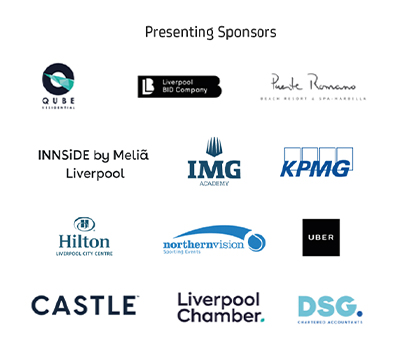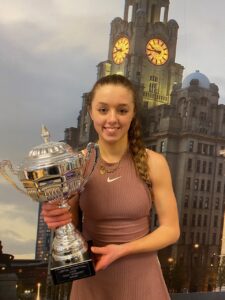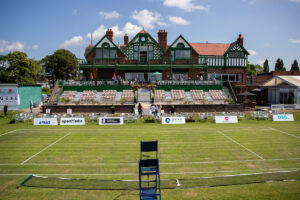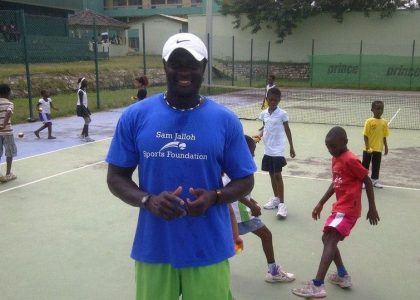
Story by David Prentice
Samuel Porreh Jelloh is not your conventional tennis coach.
For a start, he has the appearance of a championship class body builder.
“I was in Slovenia last year hitting with an American youngster,” he laughed “and a coach on the next court stopped what he was doing and asked me ‘how is it possible for someone your size to play tennis? You defy every law of physics.’ ”
The law of physics is the least Sam has defied to become a successful coach here on Merseyside.
Born in Sierra Leone and embroiled in the maelstrom of that country’s bloody civil war, tennis saved Sam’s life. Really.
He survived starvation by eating tins of cat food, while his father threatened to “cut his fingers off” if he ever picked up a tennis racket, “a white man’s sport.”
Yet, more than three decades on, he has been the flag bearer for his country at the All African Games, is a leading tennis coach based in Southport, hosts motivational speaking workshops worldwide and is the author of the inspirational “How Tennis Saved My Life.”
That remarkable moment, one of many in Sam’s life, came when he was a teenager caught up in the horrors of the civil war which engulfed Sierra Leone for 11 years and left 50,000 dead – including members of his family.
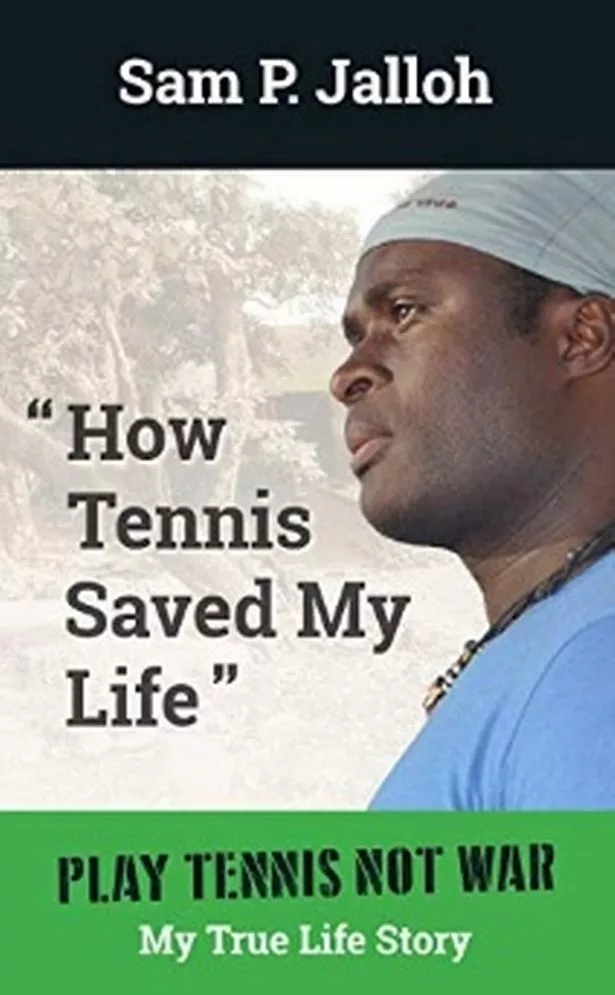
He explained: “I was a victim of the civil war. I was captured many times. The soldiers brought in to try and take control back from the rebel forces were mostly Nigerian and didn’t know who were rebels and who were were not.
“I have always been muscular and simply because of that they thought I was a rebel. You try to keep in shape but it got me into trouble!
“Once when I was captured they tied my hands behind my back and whipped me with guns. It was terrible. I was 15 or 16.
“There were 10,000 kids in the rebel force, brainwashed, and people were scared of them.
“But one Sunday morning in 1998 I will never forget. Military trucks turned up and captured me and 12 of my friends and took us to military prison.
“I was slapped and hit with a gun. I asked the guy ‘What have we done? Where are you taking us?’
“Then one of the soldiers grabbed my coat and put a gun behind me. I thought ‘this guy is going to shoot me.’ He said to me ‘PJ’, and I recognised his voice.
“He was a Nigerian soldier called Julius who had played tennis with me when we were younger. I had trained with him and he recognised me. He said to me ‘You have to run.’ But I knew that soldiers in the past when they want to kill kids, they would tell them to run and then shoot them for trying to escape.
“I thought this was going to happen to me. I had already prayed to God and thanked my parents in my mind. The fear of dying just went. But then he repeated ‘I’m going to let you go, just get away and hide.’
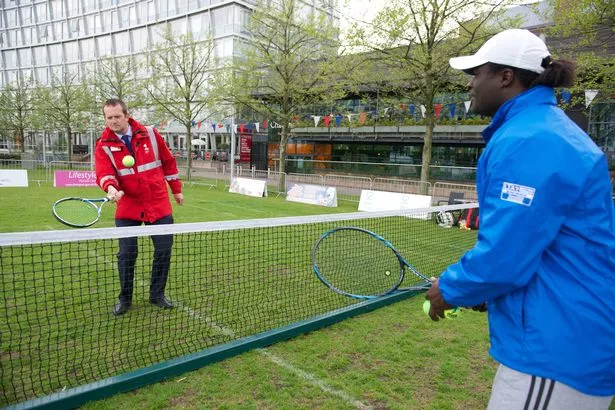
“So I ran. I ran fast. Usain Bolt would never have caught me. I never saw Julius again.
“Even the day I left to play tennis for Sierra Leone, fighting was still going on in the city, but that day tennis saved my life.”
The fact that Sam Jalloh was able to even consider playing tennis was a miracle.
Sam’s first success was simply surviving beyond his first birthday. Sierra Leone is a country that has one of the highest neo-natal and infant mortality rates in the world and Sam went on to be the first boy in his family to celebrate his second birthday, unlike his three brothers born before him.
At the age of six, Sam was adopted from his biological parents to a new home where he faced constant punishment from his adopted family. That included a ban on playing tennis.
“When I told my dad as a little kid I wanted to play tennis he told me he would cut all my fingers off because tennis is a white man’s sport,” he said. “It was only for white and rich people.”
But Sam defied his father.
“I played bare hand tennis because we couldn’t afford rackets, and we then progressed to boat-bat tennis, which is a piece of plywood, bigger than a regular racket, and I became one of the best in the country at that form of tennis.
“People started saying ‘if he had a racket ….’ and that’s how I started.
“Like most countries football is the biggest sport in Sierra Leone. I was a goalkeeper and could have been the best goalkeeper in Sierra Leone but I was always getting injured and I discovered tennis.
“I was the best junior goalkeeper in the country and when I told the national coach I wanted to pursue tennis he thought something was wrong with me.
“He said to me: ‘If you’re drunk I’ll wait until you’re sober. No-one in this country ever plays tennis seriously.’ But I love the sport and I never went back to football. I never had any regrets either.”
Those early tennis coaching sessions didn’t just ultimately save Sam’s life, they gave him his opportunity to escape Sierra Leone.
He went on: “I got into the national junior team in 1998 and played in the ITF juniors. After that I went on to play in the Futures when I was 18 and then I represented Sierra Leone in the All African Games in 2007. I was flag bearer for my country at those games
“But I was struggling financially because I wasn’t in the top 100, so I decided to become a coach.
“When I turned 18 I met with the Gambian tennis president in Ghana because he wanted me to help develop tennis in that country. I was good with kids.
“I had run out of sponsorship so I thought ‘why not?’ While I was there I discovered it was a tourist destination and I met my wife Tracie in The Gambia when I was 19! She was on holiday from Southport and we got married two years later. I moved there in 2004 and I have never looked back.”
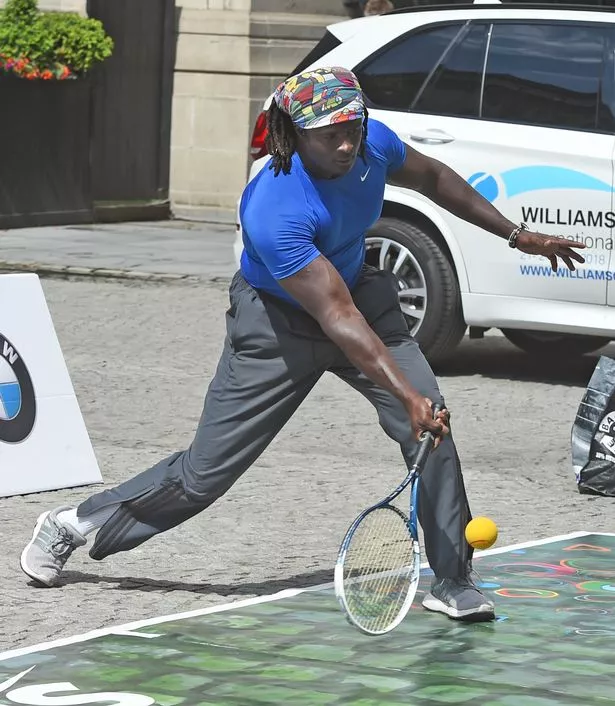
At the height of the Civil War conflict Sam found himself struggling to even feed himself. As a result he now has a story which brings a smile and a grimace to his twin daughters’ faces whenever he relates it.
“People were eating cats, dogs, snakes, whatever it took to stay alive,” he explained.
“But one day a caretaker found some tinned cat food at one of the embassies. He turned up and said ‘hey kids look what I’ve brought you.’ It was cat food. But it was the best food I have ever eaten!”
That is a long time ago now.
Sam never goes hungry. He travels the world successfully coaching tennis, having been head coach at Rainford Tennis Club and Sphynx Tennis Club in Southport. He does motivational speaking here, in Spain, and back in a now peaceful Sierra Leone. And he runs a foundation to help under-privileged children through tennis, set up with Max Thompson, son of Liverpool FC legend Phil.
He has also been introduced to Anders Borg, brainchild behind the Liverpool International Tennis Tournament, and coaches kids and knocks up with some of the world’s greatest players here in Liverpool.
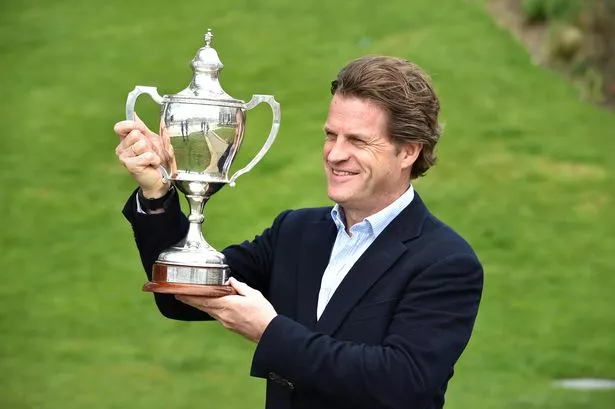
“I met Anders in 2012,” he added. “I had known about the Liverpool International for a long time.
“I’m a Liverpudlian now. Liverpool for me is the best city in the world. I can’t argue with that. I have travelled pretty much all over the planet and I wouldn’t trade Liverpool for anywhere.
“Anders heard my story and said ‘I would love to work with you’ and hired me.
“I like the mongoose. It’s a small animal which takes on much bigger challenges and they never give up. Anders is the same. Like a mongoose. He never gives up. He always pulls it off.”
So does Sam Jalloh.
Sam will be signing copies of his book ‘How Tennis Saved My Life.’ at Blend Books and Coffee Shop in Waterloo (next to the train station) on Monday June 10, on June 15 at Sphynx tennis Club in Southport. 5-7.30pm then at the Liverpool International tennis tournament which is staged at Liverpool Cricket Club from June 19-23.
To learn more about Sam Jalloh check out his website www.spjalloh.com
Story by David Prentice



